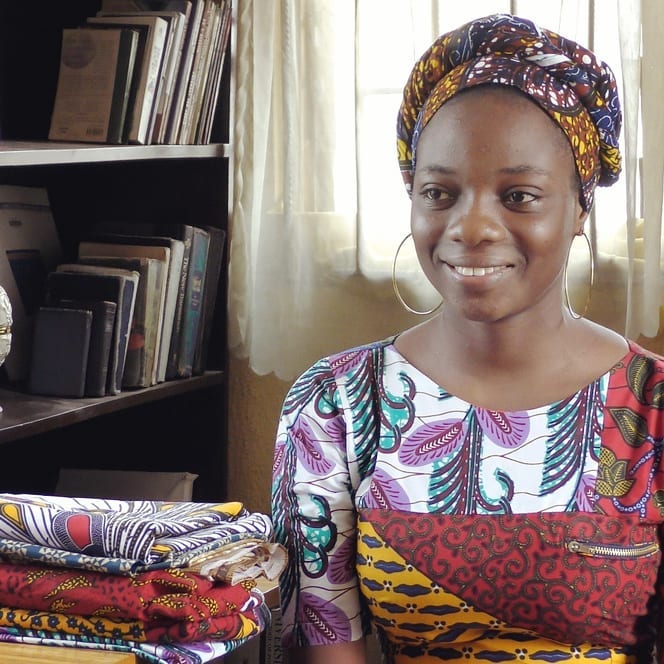Since the abolition of the enSlavement trade, Africa is still perceived to be a “cheap market” for foreign-made goods. West Africa was crucial to Europe, especially England and France, as it was to the other European countries that profited from the development of the era. Trade to and within Africa provided ample raw resources, from human resources during the enslavement era to natural resources, as it still does today.
What if we told you that our countrymen used to favour “Made in Nigeria” products above imported goods? We preferred it so much that even made in Africa, the cloth was a currency of exchange, aka “cloth money”. How did we create a country where anything not imported is considered inferior?
When Iron, Glass and Crafts made in Nigeria were unique.
Nigerians have been mining iron, tin, gold, salt, and other minerals in many locales, including Ijebu-Ode, Ilorin, Bida, and Awka, since earlier centuries. Iron was also considered a currency of exchange. Local smiths fashioned spears and arrows for hunting and inter-tribal warfare, as well as items for agricultural and domestic usage. Mineral smelting on the spot also aided the development of specialised handicrafts. In fact, since there was a high demand for Iron in Africa, European traders were allowed to import iron, but the trade power remained within the African kings. Around the 17th century, they dictated the precision, such as the weight, length, and exact measurements of every iron bar, to be accepted as an import into Africa.
The Terracotta figurines unearthed in the tin fields surrounding Nok, brass figures and ornaments from Bida, and bronze heads from Ife and Benin demonstrated that Nigeria had a long-standing sculpting industry. Not to mention the Bida’s long-established glass-making industry. Bida was known for its embossed brass and copper artistry, and their goblet designs, which skillfully combined brass and copper, were exceptionally attractive. Bida also had a thriving bead production industry, which polished the raw or unfinished beads imported from North Africa.
Creating a perception of superiority through Optical Illusion.
Nigerian people did not feel compelled to purchase European goods since they thought they were inferior to theirs, particularly cotton items. Just so you know, indigenous people could spin their thread, weave their clothing, and even make their tools when necessary. Early Europeans had to introduce luxury items in their imports to earn people’s admiration for foreign-made products. The commodities chosen to pique local interest were looking glasses, toys, beads, alcoholic drinks, cotton products, patterned textiles like Jacquard from India, weapons, gunpowder, and salt. That strategy marks the beginning of the end of a productive nation.
Industrialisation, new forms of exchange currency leading to capital accumulation.
Furthermore, while many African-made products were superior and employed as forms of exchange within Africa, their European counterparts began rigorous industrialisation. They embraced new forms of currency that would not conform to natural devaluation. And this allowed for a stark accumulation of this as capital. With this capital pushed into the diverse African regions as a form of exchange, more and more African raw materials lost their value against the new currency. The accumulation by the European side provided the needed capital investments for Europe to speedily develop its industries upon the back of the devalued raw materials, which they acquired at very Medicare fees. Many African regions were captured into colonies and forced to become suppliers of cheap raw materials to develop the rigorous industrialisation of the rest of the world. Today’s Nigerian nation is not exempted from this destiny. There was hence no space for their industrialisation. More on this subject can be found on page 88.
The demise of a productive nation!
Northern Nigeria had a long-standing leather industry that relied on the hides of domesticated animals, particularly the Sokoto Red, which produced elegant, high-quality skins. Regardless, it was incorrectly referred to as Morocco leather since it was mostly sent and sold at Morocco’s port. Cotton has also been grown and produced into textiles in Nigeria for millennia. Most people’s clothing was spun, hand-woven in basic cloth, and dyed with natural plant colours.
Back in the 16th century, a European trader described in his travel diary the cloth worn in West Africa as superior to a black and white “Cloth”.
The soap industry existed in several southern locales. Brewing was also booming in several parts of what is now Nigeria. Palmwine, indigenous grain, millet beer, and powerful kola nut wine were all brewed. Their expertise dictated the quality of the artisan’s products. People quickly developed a concept of specialisation: each town specialised in supplying certain local foodstuffs and industrial items. They knew which village market to approach for their rare but distinctive purchases. One might suggest that the idea was not to knock out the competitor but to compensate for one’s own missing goods.
High export revenues and high dependency on the system.
As previously said, this is only the beginning. At the time, certain Nigerian products were already being exported. Many farmers were motivated to adulterate their crops to increase their volume and claim more money since these limited export commodities were purchased by weight. The impact of export – farmers got higher rates for the export of certain crops compared to local sales revenues – led many farmers to move gradually from the traditional soil culture where multiple crops are planted and rotated towards a more monoculture model to increase production of just that one single cop that generated more export revenue. The buyers also fostered this system. The downside, however, is that the soil begins to diminish, and these farmers would become dependent on using only specific seeds and fertilisers they, in turn, have to import.
Adulteration for profits and a bad reputation.
So many also employed terrible methods to increase the weight of their export. Rubber-wrapped stones, for example, were mixed with palm goods to increase their weight. The Lagos administration rapidly noticed that Nigerian export goods were gaining a bad reputation on the international market, and in 1896 passed, the Native Trade Law and the Adulteration of Produce Ordinance in March 1897. These laws were enacted in order to eliminate agricultural commodities export fraud. There was. However, no provision for any type of inspection system to check that legislation was being followed. As a result, agricultural producers continued to tamper with their products, albeit on a lesser scale than before.
Could the sole focus on exporting raw materials limit extensive research and development on possibilities to process the same raw materials internally and hamper industrial development?
This evil act and government complacency persist in Nigeria to this day. Millions of laws go unenforced. Despite the existence of several regulatory bodies such as the National Agency for Food and Drug Administration and Control (NAFDAC), Nigeria National Accreditation Services (NiNAS), Standard Organisation of Nigeria (SON), and others, Nigeria remains a dumping ground for inferior products. There is no internal system in Nigeria to monitor producers properly. The sooner we wake up and realise that we can’t keep playing the victim card, the less we’ll be seen as a consumer market by the rest of the world.
We are looking forward to seeing our product compete on a worldwide scale. When consumers would say, “If it is not manufactured in Nigeria, I am not buying it”. The ideal will not be fulfilled alone via government efforts; everyone must join the quality-only train.
Connect with us, and get our app.
We created our one-stop digital incubator app to bridge knowledge and service discrepancies for African students and Savvy entrepreneurs looking to start a business. Get the app (Android version) here. For IOS users, a web app is available here at https://tribe.joadre.com. Sign up for our newsletter here to get consistent resources via email. If you want to contact us, use our contact form or consult us through the app.
Thank you for reading to the end.
Cheers
Joadre




